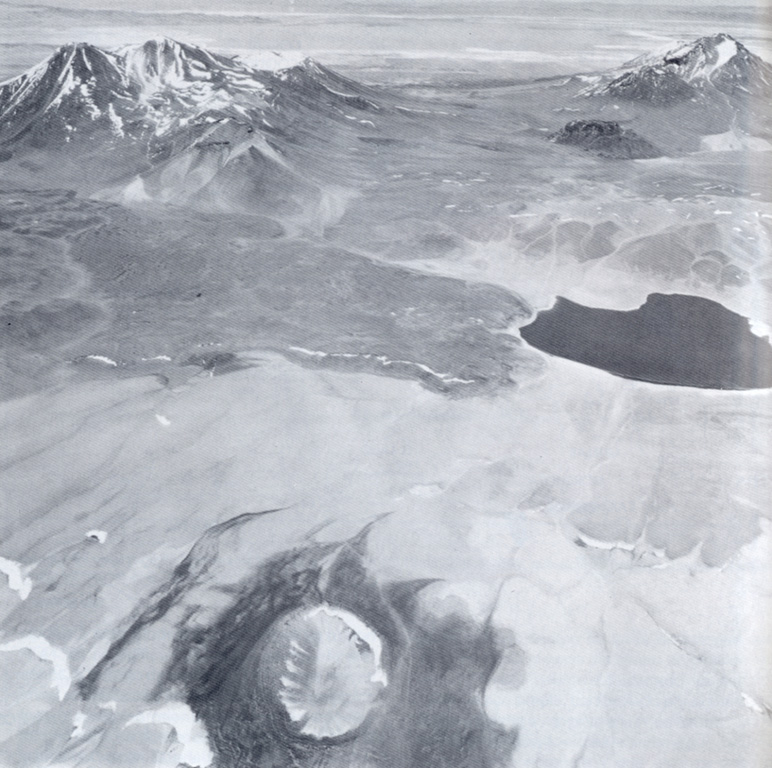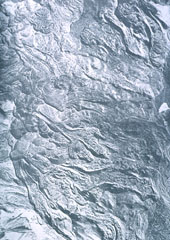Global Volcanism Program | Image GVP-09016

Cerro Overo maar in the foreground was formed by phreatomagmatic explosions. A thin, roughly 1.5-m-thick, dark-colored ejecta blanket surrounds the 600-m-wide, 80-m-deep maar. The maar is located on the lower NE flank of Volcán Chiliques and was erupted along a regional fault through basement ignimbrites of Pliocene age from the La Pacana caldera. On the horizon to the right is the east side of Tumisa and the dome "Negro de Barriales." On the left is the Lejia stratovolcano and caldera. Laguna Agua Caliente is at the right-center.
Photo by Instituto Geográfico Militar (courtesy of Oscar González-Ferrán, University of Chile).
![]() This image is made available under the Creative Commons BY-NC 4.0 license terms.
This image is made available under the Creative Commons BY-NC 4.0 license terms.

Cordón de Puntas Negras

Cerro Overo
